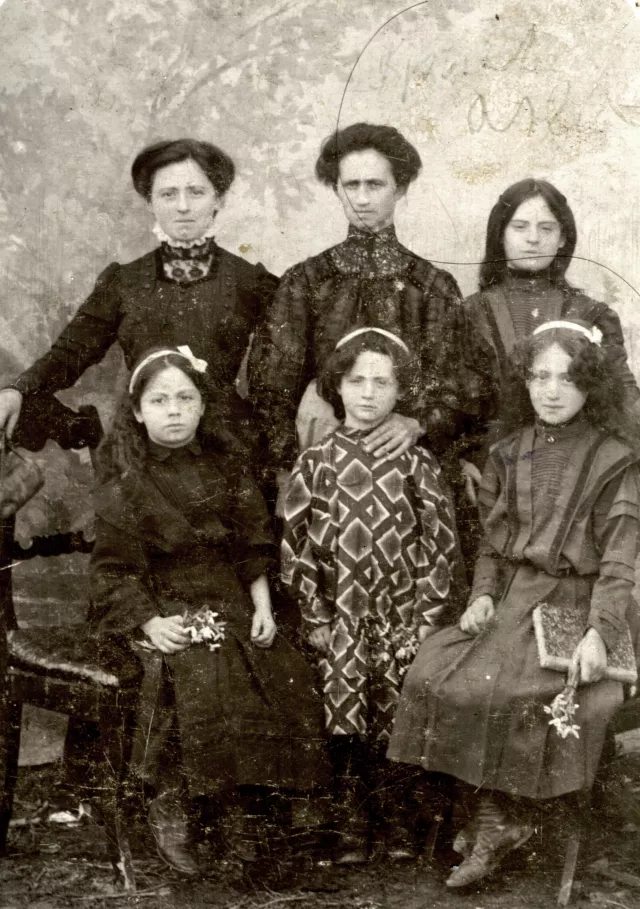Zhenia Kriss's grandmother Rukhl Kriss' family
My grandmother on my father's side Rukhl Kriss. Her older daughter Rosa is on the left and Clara is on the right. In the lower row, from left to right are Pesia, Hana and Enta. The photo was taken in Sidelkovo in the 1900s when a photographer came to the village.
My grandparents on my father's side, Pinhus and Rukhl Kriss, came from the small town of Sidelkovo in the north of Ukraine, near its border with Belarus. I don't know what my grandfather did for a living in Sidelkovo, but in Kiev, where he moved to at the beginning of the 20th century, he owned a wood storage. This was solid business because wood was always in demand, and he could provide well for his family.
My grandmother Rukhl was a housewife. They had seven children: six daughters and a son, my father. They were all born in Sidelkovo, but lived in Kiev from their early childhood years. They got education at home. My father's sisters and my father were moderately religious. They tried to observe the main rules and traditions. They only went to the synagogue on holidays, but they prayed regularly and celebrated all holidays at home. They didn't follow the kashrut, though. They spoke Yiddish at home, but they all knew Russian.
My father's older sister, Rosa, born in 1888, was a housewife. Her husband, Yufa, was a clerk. During the war Rosa, her husband and their daughter, Asia, were in evacuation. Their son, Anatoliy, perished during the war. Rosa died in the middle of the 1960s. Asia lives in Saint-Petersburg.
The next child in the family was Clara Waisberg. Her son, Munia, perished at the front during the war in the 1940s, and her daughter, Beba, who was very ill in evacuation, died shortly after the war. Clara died in Kiev in the early 1950s.
The next sister, Hana, was born in 1892. She was well educated and read a lot, the only problem was that she was deaf. She therefore didn't work and lived with one of her sisters. She lived with us for a while, too. She was single and died in the early 1970s.
Pesia was born around 1897. Pesia was written in her passport, but everybody called her Lena. She was the next child after my father. She graduated from a medical institute. During the war she worked in the hospital in Fergana, Uzbekistan. She died in the middle of the 1950s. The next child was Enta, whom everyone called Lyolia. She worked as a conductor in streetcars in Kiev. She died in the middle of the 1960s. Lena and Lyolia were single. They both lost their loved ones to the war.












